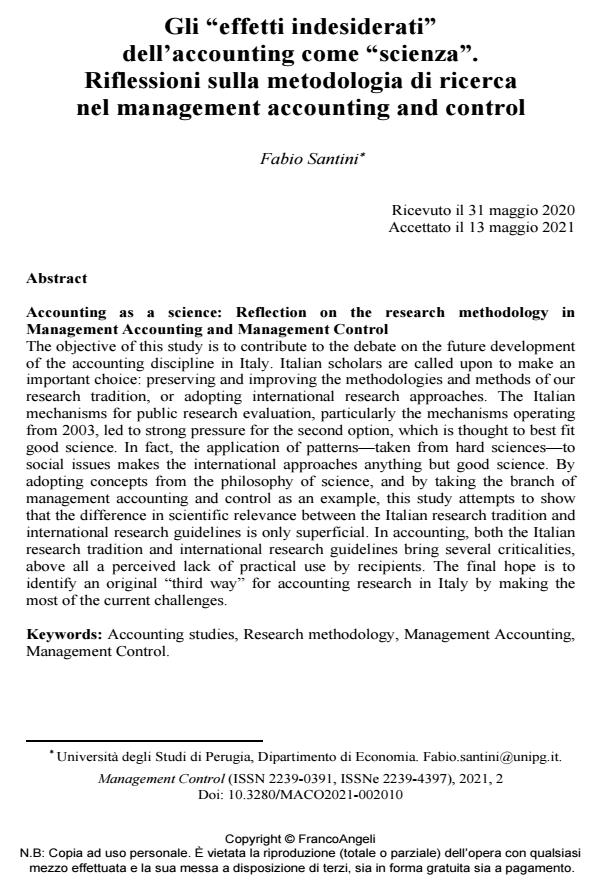Accounting as a science: Reflection on the research methodology in Management Accounting and Management Control
Journal title MANAGEMENT CONTROL
Author/s Fabio Santini
Publishing Year 2021 Issue 2021/2
Language Italian Pages 27 P. 171-197 File size 290 KB
DOI 10.3280/MACO2021-002010
DOI is like a bar code for intellectual property: to have more infomation
click here
Below, you can see the article first page
If you want to buy this article in PDF format, you can do it, following the instructions to buy download credits

FrancoAngeli is member of Publishers International Linking Association, Inc (PILA), a not-for-profit association which run the CrossRef service enabling links to and from online scholarly content.
The objective of this study is to contribute to the debate on the future development of the accounting discipline in Italy. Italian scholars are called upon to make an important choice: preserving and improving the methodologies and methods of our research tradition, or adopting international research approaches. The Italian mechanisms for public research evaluation, particularly the mechanisms operating from 2003, led to strong pressure for the second option, which is thought to best fit good science. In fact, the application of patterns "taken from hard sciences" to social issues makes the international approaches anything but good science. By adopting concepts from the philosophy of science, and by taking the branch of management accounting and control as an example, this study attempts to show that the difference in scientific relevance between the Italian research tradition and international research guidelines is only superficial. In accounting, both the Italian research tradition and international research guidelines bring several criticalities, above all a perceived lack of practical use by recipients. The final hope is to identify an original "third way" for accounting research in Italy by making the most of the current challenges.
Keywords: Accounting studies, Research methodology, Management Accounting, Management Control.
- Temi e medodologie di ricerca nell'area Management Control: stato dell'arte e prospettive Luciano Marchi, in MANAGEMENT CONTROL 2/2021 pp.165
DOI: 10.3280/MACO2021-002009
Fabio Santini, Gli "effetti indesiderati" dell’accounting come "scienza". Riflessioni sulla metodologia di ricerca nel management accounting and control in "MANAGEMENT CONTROL" 2/2021, pp 171-197, DOI: 10.3280/MACO2021-002010